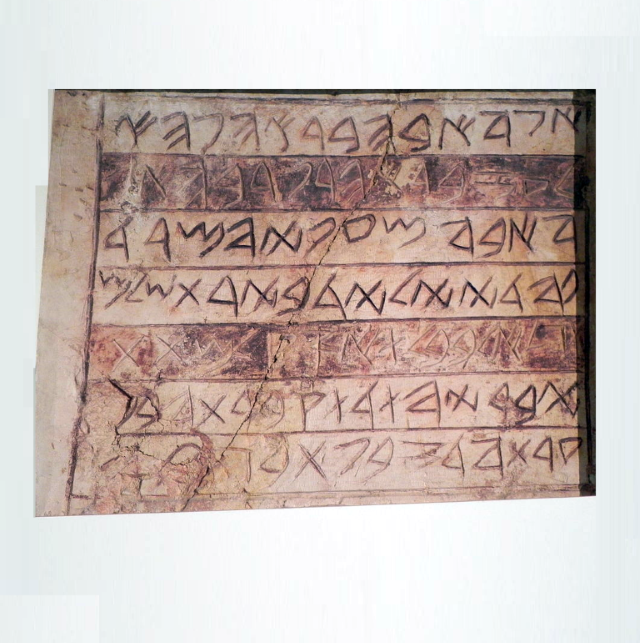The funerary inscription of “Abba Bar Kahana” from Jerusalem. The inscription is written in Aramaic, in letters that partially resemble the Samaritan script. The inscription tells about the burial of the bones of “Matityahu” (King Matityahu Antigonus, the last of the Hasmonean kings), in a cave in Jerusalem, by Abba Bar Kahana. Found at Givat Hamivtar in North Jerusalem. Early Roman period.
barcode
75120
Site item id
19947
Collection name
Item period
Exhibition location
מוזיאון ישראל
The funerary inscription of "Abba Bar Kahana" from Jerusalem. The inscription is written in Aramaic, in letters that partially resemble the Samaritan script.
The inscription was removed from a wall of a burial cave in Givat Hamivtar in North Jerusalem and is presently shown in the Israel Museum in Jerusalem.
The inscription tells about the burial of the bones of (King) Matityahu (Antigonus) by Abba Bar Kahana, in the cave in Jerusalem.
"אנה אבה בר כהנה אלעז(ר) בר אהרן רבה א[נ]ה אבה מעניה מרדפה די יליד בירושלם וגלא לבבל ואסק מתתי(ה) בר יהוד(ה) וקברתה ב[מ]ערתה דזבנת בג[ט]ה"
The wording of the Aramaic inscription: "Anna Abba Bar Kahana Elaz(r) Bar Aharon Rabba A[n]a Abba Mania Mirdafa di Yelid BiYerushalm, VeGala LeBavel, VeAsak Matati(ya) bar Yehud(a) VeKvarta BeMaarata DeZibnat Bageta "
And in translation: "I am Abba, son of the priest Eleazar, son of Aaron the High Priest, I am Abba the persecuted martyr who was born in Jerusalem and was exiled to Babylon and brought up Matthias ben Yehuda (bones) and buried him in the cave I bought with a bill."
It is commonly assumed that the bones of Mattityahu ben Yehuda, who is mentioned in the inscription, were brought from Babylon to Jerusalem, is King Mattithyahu Antigonus, the last of the Hasmonean kings.
The early Roman period.
